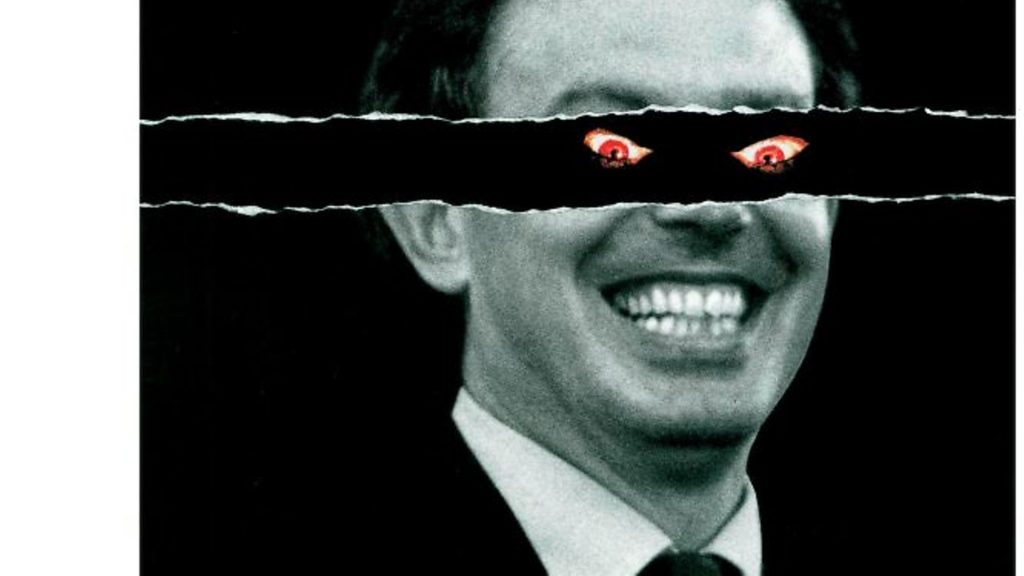
Attack adverts showing Green party candidate for chancellor Annalena Baerbock as Moses with a list of 10 commandments have caused uproar in Germany
Readers of largely sober and serious German newspapers were met with some surprising content recently: Full-page adverts dominated by a photo of the Green Party candidate for chancellor, Annalena Baerbock, dressed as Moses, holding two tablets of stone, ten commandments engraved in them.
Subtle it was not:
- You must not drive a combustion-engine car.
- You must not fly.
- You must not trade freely.
- You must not have a nicer life.
- You must keep even less of your money, even though you already pay high taxes.
- You must not consider your children and grandchildren when you retire.
- You must not rely on yourself, because the State knows better what is right for you.
- You must not freely negotiate your own employment.
- You must not hope that the State deals reasonably with your taxes.
- You must not think, that there will only be ten commandments.
All variously captioned, depending which paper you got “Annalena and the 10 Commandments… why we don’t need a State religion … Green prohibitions won’t lead us to the Promised Land.”
By the standards of the US, where attack ads are politics as blood sport, it might seem fairly tame. Likewise in the UK, where for Boris Johnson objective truth and basic morality are optional extras, it is unlikely that such an attack would trigger the debate it has sparked in Germany.
But with the Merkel era due to end come the September 26 general election, it has led to concerns about the way the country’s politics may already be changing. Is lying about your opponents OK? And is lobbying becoming too influential in German electoral politics?
The second question arises because the attack came not from Merkel’s Christian Democrats, briefly overtaken by the Greens in the polls after Baerbock’s nomination, but a neo-liberal business lobby group, INSM, Initiative Neue Soziale Marktwirtschaft, (New Social Market Economy.)
Again, accustomed as Americans are to the grotesque sums raised and spent by third party supporters in PACs and Super PACs; and accustomed as we are to the
opaque think tanks and lobby groups on the right, such a thing would barely register on the US-UK political Richter. But it is registering in Germany.
I listened to a long interview with a very defensive spokesman for INSM, struggling to justify the statements, which the main German News Agency, DPA, fact-checked with the word “falsch” against most of them. “Is there a danger we go the way of America in our politics?” asked the interviewer, the very notion clearly a horror.
It was interesting how some INSM backers, who come mainly from the auto, metals and electricals sectors, distanced themselves from the attack, as did the CDU. That sense of unease grew when the antisemitism commissioner for Baden-Württemberg, Michael Blume, stepped in: “Equating a female candidate for chancellor with an oriental Moses figure, who allegedly wants to impose oppressive bans and a state religion; I cannot laugh at all,” he said.
Protestant theologian Christoph Markschies condemned the ad as a “dreadful prime example” of anti-Jewish prejudice, Judaism “once again portrayed as a religion of laws full of absurd prohibitions.”
The Greens can, I suppose, take it as a compliment that serious business interests are taking such an expensive interest in them, at a time when polls show a fall from their high of April. The more they are attacked, the more they can project themselves as people seen by friend and enemy as a potential major part of a coalition government, possibly even led by Baerbock. To go from Merkel to Baerbock really would be a remarkable shift for Europe’s most powerful country.
The Greens may have been less sanguine, though, at the warning from the interior ministry of active interference in the election by Russia. Indeed, even as US president Joe Biden was warning Vladimir Putin of retaliation for continuing cyberattacks, Baerbock was being identified as the Russians’ prime target ahead of September 26.
Might that explain why, when that old misogynist hardy annual, the ‘nude photo’, turned up online, it emerged the body on display belonged not to a younger Baerbock, but a Russian model who looked like her? Might it explain too why there are so many bots spreading anti-Baerbock messages on the internet? Oh, and guess what, they say she is in cahoots with George Soros, without whom no right wing conspiracy is complete.
It is not hard to see why Putin does not take kindly to the 40-year-old LSE graduate. She has consistently attacked Russia, over their troops on the border with Ukraine, State-sponsored murders, the detention of opposition leaders such as Alexei Navalny.
She is a vocal critic, for environmental and geopolitical reasons, of the Nord Stream 2 pipeline project. She is critical of Merkel not only for her support of the project, which she worries will give Russia far too much power over German energy supplies, but also because she believes it makes the chancellor soften her stance on Putin’s contempt for democracy, human rights and international norms.
Neither Merkel, nor her successor as CDU candidate, Armin Laschet, would enjoy being lumped in with Trump and Brexit, but just as Russian interference was aimed at helping Donald Trump become President, and the UK leave the EU, so in this contest, Putin would prefer Laschet as chancellor ahead of Baerbock.
Germany remains far and away the EU country of greatest interest to Russian influence operations in their hybrid war. There have been more than 700 targeted disinformation campaigns against Germany since 2015, according to EUvsDisinfo, which documents Russian propaganda activities. That compares with 300 for France, 140 for Italy.
In the 2017 elections, Russian hacker attacks were directed at several Bundestag members, and Russian bots in the main boosted online content linked to the far-right AfD party. This time, they will be less about boosting anyone, more about doing down the Greens, exactly the approach taken by those who placed the Moses ad.
Seeing religious figures engaged in debate about an attack ad in Germany 2021 took me back to 1996 in the UK, and no, not for that German semi-final penalty shoot-out win against England before they went on to win the Euros.

Readers of a certain age may remember what became known as the “demon eyes” poster, in which the Tories appeared to insert the eyes of the devil into Tony Blair’s smiling face with the slogan “New Labour, New Danger.” I remember the episode best for Peter Mandelson exclaiming. “We need a bishop; someone get a bishop,” and campaign staffer Peter Hyman coming back later with the good news: “We’ve got the bishop of Oxford.”
Judging by the attacks so far, with perhaps worse to come, and without her always even knowing where they are coming from, Baerbock may need more than a bishop, more even than Moses, to see them off.
What do you think? Have your say on this and more by emailing letters@theneweuropean.co.uk










